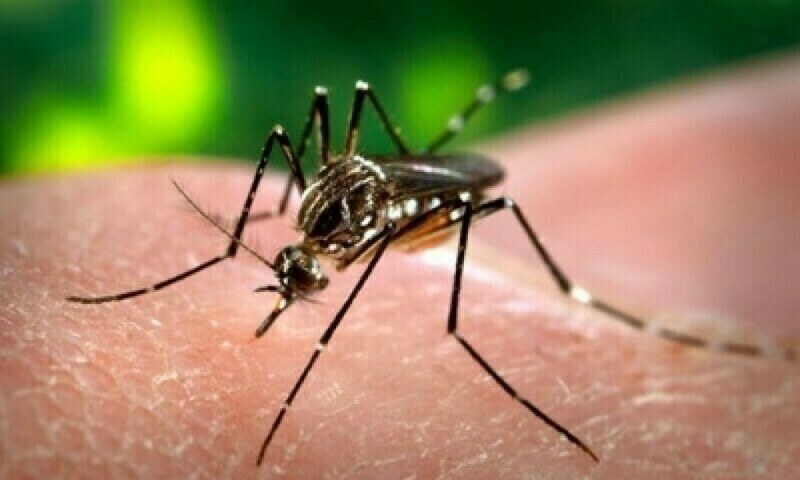
There is no point in refuting the entire flood of nonsense released during this pathetic event. What has to be said is that given this performance, given the unhinged behavior of Kennedy, given the president’s total lack of knowledge about health and science, and given the sycophantic behavior of his top medical and science officials, one thing is clear: Americans cannot trust their government. The HHS, FDA, NIH, CDC and executive branch have collectively jumped the public health shark.
We have seen in history ideology used to drive science to confirm the prejudices of dictators like Hitler, Stalin, and Mao. We now have a regime that sees science as an enemy and public health as only fit for personal anecdotes and conspiracy. The Trump administration’s approach to science policy is to hide or not collect crucial data, then leave medical care advice to ill-informed, fringe media influencers peddling goop, nostrums, elixirs, and potions.
American science is now the laughingstock of the world: visas for top scientists and students canceled, research grants blindly cut, important topics for research banned, political appointees with hardly any qualifications running most health and science agencies, databases wiped, scientists fired, and uncomfortable peer-reviewed reports buried.
A fact sheet released alongside the White House briefing cited Bauer’s analysis. But she was alarmed by Trump’s comments. If prenatal Tylenol has any association, which it may not, it would help account for only a fraction of cases, she said. Further, research has not deeply examined Tylenol risks in young children, and many rigorous studies refute a link between vaccines and autism.
Bauer worries such statements will cut both ways: People may put themselves at risk to avoid vaccines and Tylenol, the only safe painkiller for use during pregnancy. And she frets that scientists might outright reject her team’s measured concerns about Tylenol in a backlash against misleading remarks from Trump and other members of his “Make America Healthy Again” movement.
“I’m really concerned about how this message is going to play out,” she said. “It’s a sound-bite universe, and everyone wants a simple solution.”
[Trump] steamrolled his health department’s plans to announce a nuanced step toward addressing rising autism rates, seizing on the first possible solution to declare a victory over a scientific question that has captivated him for decades, four administration officials and close advisers said.
“I’ve been waiting for this meeting for 20 years,” Trump said from the Roosevelt Room. “I always had very strong feelings about autism and how it happened and where it came from.”
The president went on to promote a range of unproven theories and musings about autism, Tylenol and vaccines. … The rambling display stunned administration officials who had expected the event to highlight a cautious new warning on Tylenol, $50 million investment in further autism research and approval of a potential treatment — only to watch Trump declare that “taking Tylenol is not good” and then veer into vaccine skepticism, two officials familiar with the matter said.
The administration officials and advisers privately acknowledged that the president’s blanket assertions had gone well beyond the underlying evidence he’d been presented with in prior days, turning what health officials had termed a possible “association” between Tylenol use during pregnancy and higher autism rates into a definitive causal link — and then proclaiming that flawed conclusion from the West Wing.
The president’s message was clear: Weak women who cannot handle the high fevers and debilitating pains of pregnancy are harming their children. According to this logic, if those of us who are choosing (or in the 12 states that have near-total abortion bans, are being forced) to have children want to be good, decent, worthy mothers, we must suffer. Here Trump and Kennedy are advancing the long-held Republican belief that motherhood is synonymous with martyrdom. Like the biblical Eve, conservative politicians believe we deserve and should gladly accept the agony of procreation. If we are to be decent parents, we must sacrifice everything — our health, our bodies, our careers, our independence, our sense of self, and now the ability to live pain free — for the sake of our children and at the behest of our husbands. …
[A]ccording to MAHA, it’s us Tylenol-guzzling, weak-willed women who run to our medicine cabinets the moment we feel the slightest ache who must be the root of the problem. It’s selfish moms like myself who have the audacity to work during pregnancy and, as a result, need pain relievers to help us commute from our homes to our offices, or even just from our beds to our couches, in the midst of those pesky round-ligament or pelvic-girdle pains. Never mind that the American College of Obstetricians and Gynecologists has reaffirmed it is safe to use Tylenol during pregnancy and slammed Trump’s announcement as “irresponsible,” adding that it is a “harmful and confusing message to send to pregnant patients.”
Instead, Trump is doing what Republicans do best: blaming mothers for what society either doesn’t understand or fails to adequately address. He’s not the first to make this kind of dubious connection, either. In the ’50s and ’60s, a now-debunked theory peddled by psychoanalyst Bruno Bettelheim, who popularized the term “refrigerator mom” to describe mothers who he claimed were not affectionate enough, held that it was our “cold and detached” nature that caused autism. Other, since-debunked studies attempted to blame moms who have C-sections for causing autism in their children.
Scientists and the autism community eventually moved on from the myth of the refrigerator mother, but many autistic mothers see the words of Trump and other top health officials at Monday’s event as an unnecessary return to shaming parents for factors outside of their control, and felt demeaned by the significant mischaracterization of autistic people.
The vast preponderance of evidence suggests that autism is mainly genetic, not the result of parental indifference or Tylenol use or exposure to toxic chemicals. Nonetheless, health secretary Robert F. Kennedy Jr. has characterized the rising rates of autism in recent decades as having a “cataclysmic impact” on American children and pledged Monday that “patients and parents can prevent and reverse this alarming trend.” Many parents with autism disagree with the secretary’s underlying assumption that autism is “fixable,” or something that even needs fixing.
The American president has perhaps the most powerful voice in the world. His opinions shape policy. His beliefs are amplified to hundreds of millions of people in the United States and beyond. It’s inevitable that many will take his assertions seriously and share them. By saying that people like me are an “epidemic,” the result of something “artificially induced,” he’s strongly implying that we are broken, that we are somehow wrong. It’s hard to not be hurt by this language. If I am the product of an epidemic, does this mean that I — that we — should be cast away from society? Does this mean that I should be viewed as a causality? …
What makes Trump’s comments especially hurtful is that there have been many instances in my life where I have been treated as someone who needs to be fixed. As a young child, I was referred to services that sought to suppress my autistic behaviors. It was an ugly part of my life.
The reality is that there’s no “epidemic” of autism. As pointed out time and time again by the autistic community, the increase in the number of people being diagnosed can be largely explained by better screening and more awareness.
Language that treats autism as the product of an “epidemic” is damaging to autistic people because it implies we need to be cured. As virtually all autistic people can tell you, we’re not seeking being cured. We’re also not broken, and we’re definitely not the people that Trump and Kennedy believe we are.
Some may retort that Trump and Kennedy weren’t talking about autistic people like me. Rather, they might suggest, they were referring to high-needs autistic people. But even then, it’s problematic, suggesting that high-needs individuals are burdens, which is dehumanizing.
It is absolutely appropriate to ask the question whether pregnancy exposure to common medicines affects babies in utero and beyond. However, it is dificult to produce definitive answers here; the research is difficult to do well, requiring meticulous design and careful reporting of results. Trump’s announcement was nothing like this; it was essentially speculation, and it could have serious consequences.
Untreated illnesses during pregnancy can be harmful, not only for women’s long-term health, but also for their baby. The “precautionary approach” is often mentioned: if there is any concern about [paracetamol/acetaminophen], shouldn’t women avoid it to be better safe than sorry? But precaution should go both ways. There is a cost when encouraging pregnant women not to take a effective medicine for pain and fever. These symptoms affect women’s health, functioning and wellbeing, while untreated fever could pose risk to the baby. Research is ongoing, but it appears that maternal fever could have negative effects on the baby’s brain development.
Discouraging paracetamol use risks pushing women who are in need of pain relief towards unlicensed treatments or alternative analgesia such as ibuprofen. Unlike paracetamol, ibuprofen poses proven risks in pregnancy in different trimesters, including miscarriage, foetal kidney damage and premature closure of an important blood vessel (the ductus arteriosus) in the foetus. These risks far outweigh any possible link between paracetamol and childhood autism.
The World Health Organization has joined the international pushback against the Trump administration’s warnings that acetaminophen use during pregnancy leads to autism, saying Wednesday there is “no conclusive scientific evidence confirming a possible link.” … The WHO added Wednesday that the exact cause of autism has not been established and that “it is understood there are multiple factors that can be involved.”
“Extensive research has been undertaken over the past decade, including large-scale studies, looking into links between acetaminophen use during pregnancy and autism,” the organization said in a statement. “At this time, no consistent association has been established.”
On Tuesday, Britain’s Medicines and Healthcare products Regulatory Agency released a statement confirming that taking acetaminophen, also known as paracetamol, during pregnancy “remains safe and there is no evidence it causes autism in children.” … Wes Streeting, Britain’s health secretary, had harsher words for Trump’s new health advice, telling the broadcaster ITV that Britons should not “pay any attention whatsoever to what Trump says about medicine.” …
Other global health organizations criticizing Trump’s guidance include Australia’s Therapeutic Goods Administration and the European Medicines Agency, which said in a statement Tuesday that there is no new evidence that would require changes to its guidance on using the pain reliever during pregnancy.
Trump’s remarks perpetuate a false belief that autism rates are lower among the Amish, a misconception that [Amish Research Clinic co-director Braxton] Mitchell says resurfaces periodically. The reality, he says, is that there is no good data on rates of the neurological disorder in the Amish. But he knows firsthand from working with Amish people in the Lancaster area that they, too, struggle with autism.
“There have not been any good studies to ascertain what the frequency is, so we don’t really know, but anecdotally, yes, there is autism in the Amish,” said Mitchell, a genetic epidemiologist. He did a literature search within the last six months, and found only one study that did a systematic assessment of autism in the Amish.
The study screened 1,899 Amish children across two communities in Holmes County, Ohio, and Elkhart-Lagrange County, Indiana, according to preliminary data presented at the International Meeting for Autism Research in 2010. They found a rate of approximately 1 in 271 children. That was lower than the general population’s estimated prevalence of 1 in 91 at the time; however, the difference could have been due to caregivers answering screening questions differently due to “cultural norms and customs,” the paper noted.
“It certainly dispels the myth that there is no autism in the Amish, at the very least,” Mitchell said. Autism may be underdiagnosed among the Amish because they tend to handle health issues internally, within their communities, and seek professional medical care only for pressing problems, Mitchell said. Some may not consider behavioral health issues such as autism an emergency medical concern. Many also do not have health insurance, which means they pay out of pocket any time they go to the doctor.
[F]or years Cuban doctors have publicly detailed efforts made to treat children on the island who suffer from autism.
“Every autistic person is unique, and their well-being depends on listening, understanding, and walking alongside them, knowing that inclusion isn’t measured in words, but in embraces that respect silence and celebrate different ways of existing,” Dr. Osmara Delgado Sánchez told the state-run website Cubadebate on April 2, which is Autism Awareness Day.
While Cuba has reported much lower instances of autism than many developed countries – 0.36 cases per 10,000 people – the island’s health professionals concede that may in part be the result of the lack of resources needed to more widely diagnose the condition. According to the World Health Organization, in 2021 about 1 in 127 people had autism. But the WHO cautioned, “the prevalence of autism in many low- and middle-income countries is unknown.” Despite increasingly scant funds, Cuba’s beleaguered health sector is making autism a priority, officials said.
Although there are many studies on medications during pregnancy, these are almost always observational studies that require careful sleuthing about potential confounding variables. Why don’t we have RCTs, which would more definitively answer these questions?
Historically, researchers have been hesitant to conduct RCTs involving pregnant people. But ad hoc safety research has left critical gaps, and recent work has demonstrated that excluding pregnant women from RCTs can be shortsighted. Because many of women take acetaminophen during pregnancy, if a side effect existed, many children would have already been exposed. On the other hand, with the White House announcement, some pregnant patients may try to avoid acetaminophen, even if the risk of untreated fever may be more harmful.
To help balance the benefits and harms of medication use, pregnancy advice often urges patients to “ask their doctor.” But clinical judgment cannot substitute for decades of inadequate investment in research. And uncertainty too often leaves patients feeling the onus pushed onto them: “You can take this medication if you really need it” or if you “can’t tough it out.” A definitive RCT — on acetaminophen and many other medications — would require studying only a few thousand participants, either putting concerns to rest or helping physicians and patients to navigate better-defined risks.
For now, our best evidence refutes a link between acetaminophen and autism. But a worthy consequence of the current national spotlight would be a commitment to systematically address the true gaps on medication safety during pregnancy.



